So the light bulb turned on, you’ve developed the idea and gone through the long and winding path of writing (multiple drafts) until you’ve arrived at a finished script. That means it’s time to enter it into some contests, get funding, find the director, and hire the actors and crew, or at the very least show it to other writers, right?
Nope, there’s still another step you’ll want to get done first: Copyrighting the script. Now, understanding what is involved in a copyright is the key to understanding when, how and why you should begin this process. Believe it or not, it’s not as complicated as your think it is.
We did it online at the WGA and copyright office. Very quick and easy – and it was interesting – I made a mistake on the copyright office application and they called me and corrected it. – Joe Crump, Director of The Storyteller
We’ve all seen the little circle with a “c” inside. But what does this symbol and material being copyrighted actually mean? To find out we need to understand the definition. According to the Merriam Webster Dictionary, a copyright is “the exclusive legal right to reproduce, publish, sell, or distribute the matter and form of something (as a literary, musical, or artistic work).”
But wait a second, Heather – I’m the author of my script, doesn’t that mean that I already have the “exclusive legal right?” The answer is both yes and no. Yes – because from the moment you have completed your finished script all countries recognize that you, the writer, own the copyright for your creation. However, the problem arises when you have to prove that ownership in a court of law.
We’ve all heard the horror story, someone takes your script, tears off your title page and puts one with their name on the by-line; they’ve stolen your script. Then they make the movie, and that movie goes on to make millions upon millions. They can’t get away with it – so you hire a lawyer and go after them. Now you have to legally prove that you wrote the script first. Having a copyright of your material helps prove that your script is in fact your script.
Don’t steal ideas – it’s not worth it… just ask Johnny Depp:
Question: Is registering a script with the WGA enough to prove ownership?
Registering your script with the WGA is an important step that offers benefits that will supplement the copyright, BUT it does not act as a proof of ownership in a court of law. Two of the key benefits of registering with the WGA are: 1) You will have a date of creation with the union and 2) A WGA member will appear in a court of law to testify on that date of creation with the union.
But why would you need such testimony? To prove that you own your script – something that a copyright does automatically.
In addition, the length of a WGA registration is 5 years. After such time you’ll have to re-register the script. A copyright lasts the length of the author’s lifetime plus at least 70 years, more if the copyright is with a corporation.
Question: I’ve already begun sending my script out, is it too late to copyright my material?
No, the benefits change but your script will be protected. Bottom line, a late copyright is better than no copyright.
Want to learn more about the benefits of a WGA registration versus Copyright? Check out this helpful article from The Writers Store.
Think of it this way – a baby gets a birth certification, a car gets a registration, and even our pets get registered. Your script is just as important (let’s face it, maybe even more important) and deserves to be just as protected.
So now that we know what a copyright is and why it’s important to have one, the question is when should the script be registered?
We waited till we had a full draft that we were happy with, but before we sent it out to any readers or friends. – Joe Crump, Director of The Storyteller
You cannot copyright an idea. This is because an idea can be turned into several different creations. You need to write down your creation. This can mean a treatment or the full script. The more complete your copyrighted document (be it a treatment or the script), the better it distinguishes your idea.
We’ve gone over the what and the why, all that’s left is the how. Registering for both a copyright and with the WGA can be done online. Go WGA’s dedicated website to register with the WGA. It’s $10 for members or $20 for non-members and takes about 5 minutes (hence why it’s such a popular choice).
To register for a copyright, go to http://www.copyright.gov/. From there you will click on the “register your work” tab and begin the process of registering your script.
I’m not worried about someone stealing my script – we’ve even posted it online for others to read and give us feedback. It’s too hard to make a movie and no one would spend all that time and money only to worry about legal issues later. – Joe Crump, Director of The Storyteller
Here’s the thing, articles like this one tend to illicit fear in writers, makes us want to turn off the internet, lower our voice to a whisper if we dare to start talking about our idea or even close the laptop when we see someone looking at us while we write. Don’t be afraid to share your work. Being a writer, especially a screenwriter, means that in order for your script to get made into a film, eventually someone else has to read your work.
Join us next time when we dive deeper into another aspect of the filmmaking process: Music, Licensing and it’s many uses. Until then, here’s clip from a panel that echoes Joe sentiments about sharing work.



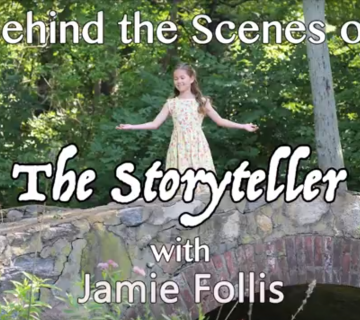
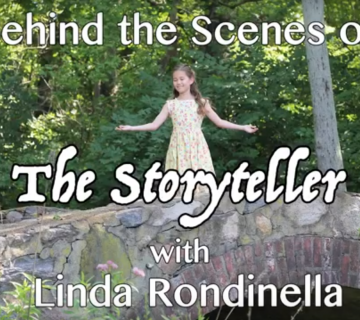
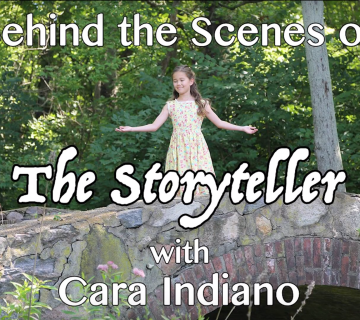
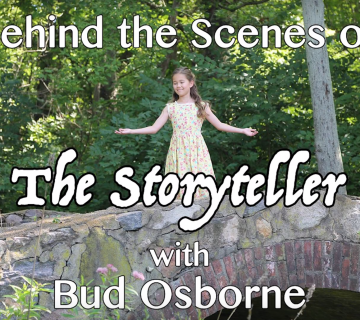
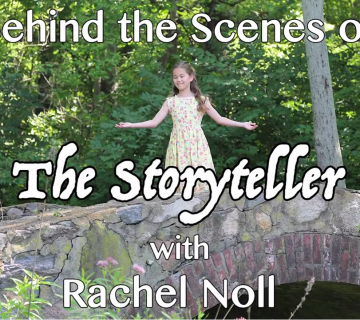


Join the Conversation →